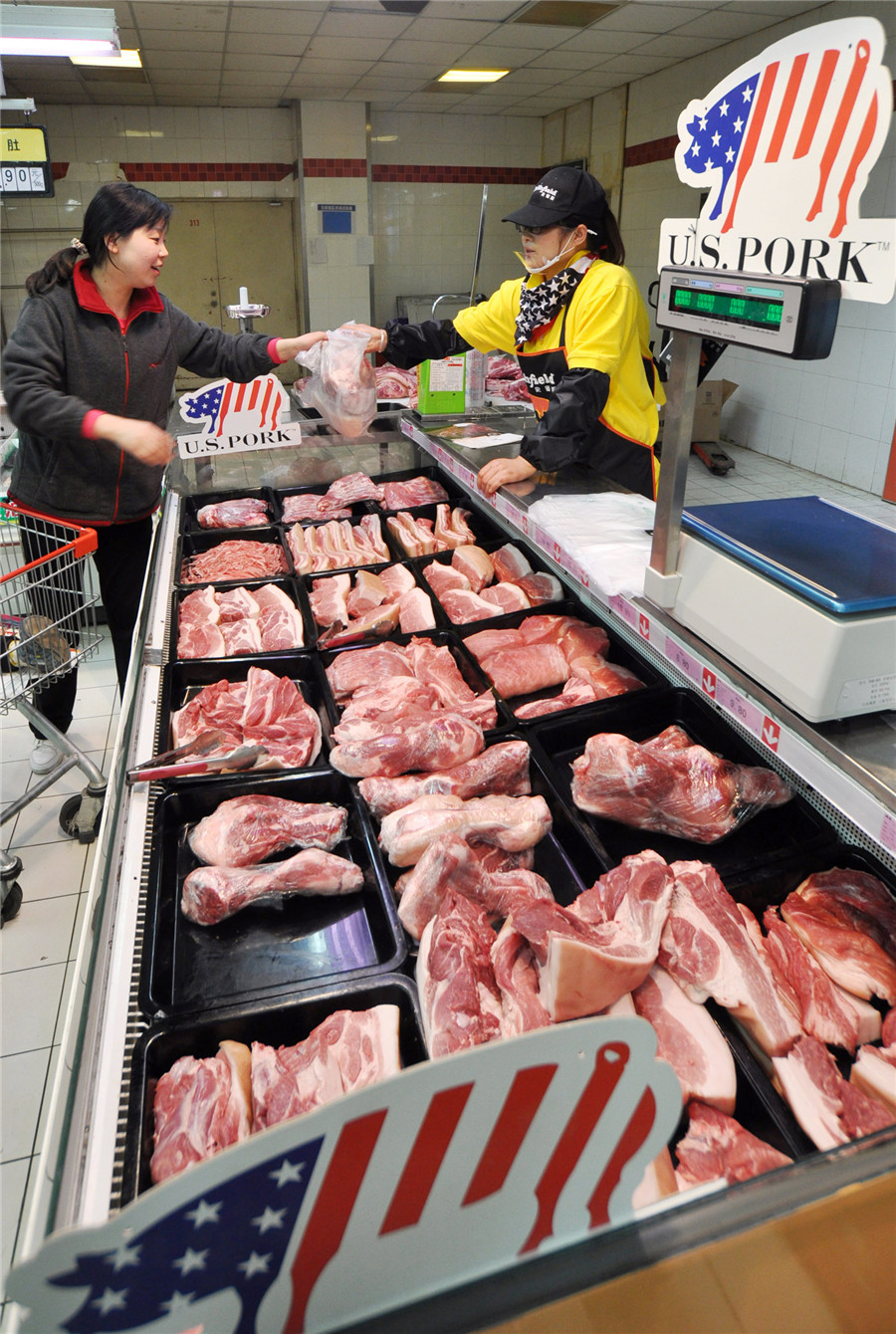Hog farmers increasingly worried about prospects


Due to different dietary cultures, China has been historically an important complementary market for US pork, said Preisler.
The industry leader noted that stable trading with China has had a positive effect on the local economy, especially in Minnesota, where some 3,000 farms raise about 16.5 million pigs per year, making it the second-largest pork producing state in the United States.
Earlier this year, US hog farmers had some hope that the tensions would be resolved soon, driven by the positive signs in trade negotiations.
However, the situation has become worrisome in recent months, as the US administration threatened to impose further tariffs on Chinese imports.
The longer trade tensions with China linger, the more American farmers will see their window of opportunity close as competitors claim parts of the Chinese market share, said Preisler.
"If China goes to other customers to find pork, well, they may just stay with those customers even after a dispute is settled," he added.
Pork producers are also frustrated that they may miss a prime opportunity to secure a share of the lucrative market when there is huge potential concerning China's need for imported pork.
Official data showed that China's hog stock declined by over 20 percent year-on-year in May due to multiple factors, including African swine fever and higher costs of pig breeding.
So far, many individuals, organizations and business groups in the United States have voiced their concern about the tariffs' ripple effects on both relative industries and the broader US economy while hoping for a final settlement.
US anti-tariff advocacy group Tariffs Hurt the Heartland warned that as the country's trade disputes with its trading partners persist, repercussions will be felt by farmers, factory workers and consumers nationwide.



































